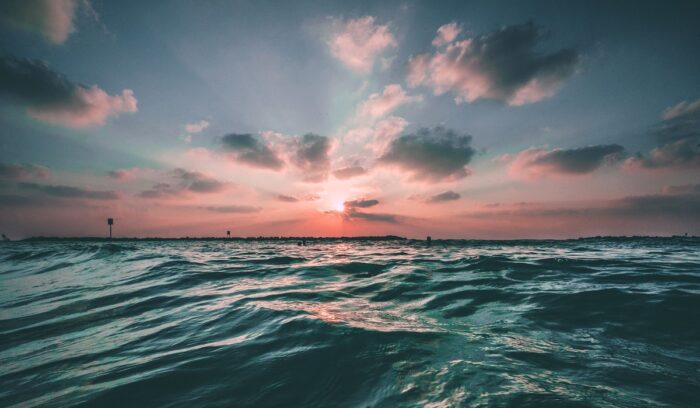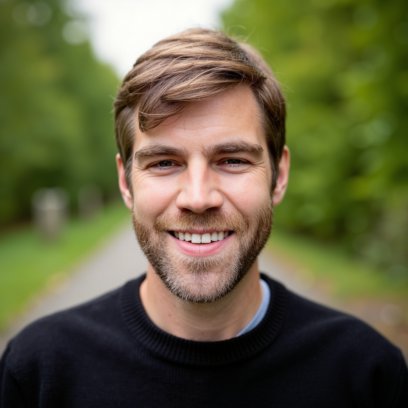Good News for Humankind
The world’s latest milestones for climate, justice, freedom, peace, health, and more
October 7 – 13 2024 C.E.
Hi beautiful people,
The world feels heavy lately. War is boiling over in the Middle East. Hurricanes are ravaging communities and ecosystems, seemingly stronger and more deadly every year. In the States, election season is upon us with the stakes higher than ever and little room for comfort.
In times like this, it can get hard for me to see a path forward. And so sometimes I need to remind myself why this newsletter exists.
For me, the point of celebrating good news is not to shut out, deny, or even diminish all the insane, sad, and terrifying things in the world today. It is not pretend everything is fine. It’s not even to suggest that things aren’t as bad as others are saying.
The point is simply to remind myself and anyone who will listen that change is possible and happening all around us every day. It’s to offer balance and hope amid all the very real challenges and tragedies around us. It’s to cultivate the perspective and resilience we need to be truly present to the urgency and immensity of the challenges at hand.
Here’s my invitation, mostly to myself: If you’re feeling sad, angry, or afraid about the world, don’t fight it. Don’t try to reason your way out of it. Let it all the way in. Feel it all the way through. Take your time.
And then remind yourself that change is possible. And then go do something about the challenges that stir you so deeply, without deluding yourself into thinking you can do it all.
Love, Peter
Calendar
- Bellingham Men’s Circle on Monday, October 14 from 6-8pm PT (in-person)
- GET S*** DONE: Anti-Procrastination Group on Monday, October 14 at 12:30-2pm PT (online)
Australia to protect 52% of its oceans, more than any other country
The country’s environment minister, Tanya Plibersek, has declared Australia will soon protect more ocean than any other country after the government finalizes a more than 300,000 square kilometer expansion of a sub-Antarctic marine park. Speaking ahead of what was billed as a global nature-positive summit in Sydney, Plibersek confirmed the Heard Island and McDonald Islands Marine Reserve about 4,000 km south-west of Perth would quadruple in size.
India eliminates trachoma as a public health problem
The World Health Organization has validated the world’s most populous country as having eliminated trachoma as a public health problem. India joins Nepal and Myanmar in the WHO South-East Asia Region and 19 other countries globally that have previously achieved this feat. Though trachoma is preventable, blindness from trachoma is extremely difficult to reverse. Trachoma continues to be a public health problem in 39 countries and is responsible for the blindness of about 1.9 million people.
Claudia Sheinbaum is sworn in as Mexico’s first female president
After a smiling Sheinbaum took the oath of office on the floor of Congress, legislators shouted “Presidenta! Presidenta!” using the feminine form of president in Spanish for the first time in over 200 years of Mexico’s history as an independent country. In her inauguration speech, Sheinbaum said that she came to power accompanied by all of the women who have struggled in anonymity to make their way in Mexico, including “those who dreamed of the possibility that one day no matter if we were born as women or men we would achieve our dreams and desires without our sex determining our destiny.”
Republic of Congo to catalyze investment in high-integrity forests
Conservation authorities in the Republic of Congo have launched a plan to invest in the protection of “high-integrity forests” in Nouabalé-Ndoki National Park, treating these ecosystems as an asset class. The new initiative aims to fill a funding gap to protect the ROC’s forests by selling high-integrity forest (HIFOR) units, defined as representing “one hectare of healthy, high integrity tropical forest actively conserved within a large landscape for decades.”
U.S. announces 10-year deadline to remove all lead pipes nationwide
President Biden has announced $2.6 billion in funding to replace all lead pipes in the United States as part of a new EPA rule that will require lead pipes to be identified and replaced within 10 years using the new funding from the Bipartisan Infrastructure Act. The EPA estimates that nine million homes in the U.S. still have lead pipes. “Studies show … communities of color have been the hardest hit,” Mr. Biden said. “One study showed Black children were at least two times more likely to have elevated levels of lead in their blood than children of other racial groups. We have an obligation to make things right.”
Scientists in the U.K. developing world’s first vaccine to prevent ovarian cancer
Researchers at the University of Oxford are working on the world’s first ovarian cancer vaccine, aiming to prevent the disease that kills nearly 26,000 women in the European Union every year. The vaccine, called OvarianVax, would train the immune system to recognize and fight back against the earliest stages of ovarian cancer, one of the most common forms of cancer among women which often isn’t detected until a later stage when it’s harder to treat. Cancer Research U.K. will fund the OvarianVax research with up to £600,000 for the effort.
University of Toronto researchers develop method to accelerate forensic analysis in sexual assault cases
The entire process currently can take days, weeks, or longer. To speed things up, the researchers focused on the first step: separating two individuals’ DNA from a single sample. At present, this is usually done manually by trained and experienced experts. The new method uses a process called ’differential digestion” using digital microfluidics that helped simplify the overall process and reduce the number of manual steps needed to isolate the assailant’s DNA from 13 to five.
Greece’s sea turtle nests reach record numbers as conservation efforts pay off
From Spain in the west to Cyprus in the east, the Mediterranean has witnessed a record rise in sea turtle nesting – testimony to the painstaking efforts of environmentalists determined to save an ancient mariner that not that long ago was on the verge of extinction. In Greece, which hosts 60% of Caretta caretta nests, the rebound has been phenomenal: from an average of 5,000 to 7,000 nests per year, since 2023 over 10,000 nests have been recorded annually, according to Archelon, the Sea Turtle Protection Society of Greece.
Synapse-restoring pill set for human trials as novel schizophrenia treatment
Spinogenix is the American company behind the once-a-day pill that restored lost nerve cell connections in people with amyotrophic lateral sclerosis (ALS). Having been granted approval from the Australia Human Research Ethics Committee (HREC), it is now actively enrolling participants for its Phase 2 clinical trial to evaluate the safety, effectiveness, tolerability, and pharmacodynamics of once-a-day SPG302 as a treatment for schizophrenia.
California bans all plastic shopping bags at grocery stores
California had already banned thin plastic shopping bags at supermarkets and other stores, but shoppers could purchase bags made with a thicker plastic that purportedly made them reusable and recyclable. The new measure, approved by state legislators last month, bans all plastic shopping bags starting in 2026. Consumers who don’t bring their own bags will now simply be asked if they want a paper bag.
Western Australia’s Western Rock Lobster industry becomes world’s first fishery to be certified as sustainable by the Marine Stewardship Council (2000 C.E.)
A fishery that obtains Marine Stewardship Council (MSC) accreditation has met the world’s leading benchmark for sustainable management and provides consumers with certainty and assurance that the products they buy are sourced, harvested, and fully traceable through the chain of custody from ocean to plate. The fishery has maintained continuous certification since that time.
International community achieves “30×30” goal of protecting 30% of world’s oceans by 2030 (2030 C.E. ???)
After a decades-long effort, more than 30% of the world’s oceans are now formally protected in Marine Protection Areas (MPAs) limiting fishing, underwater drilling, and other damaging activities. The protection proves a massive boon to conserving biodiversity, combating climate change, and maintaining critical ecosystem services.
These milestones have been added to the Archive of Human Genius – our database of social change milestones – past, present & future.


Will visit website regularly. S0 needed!